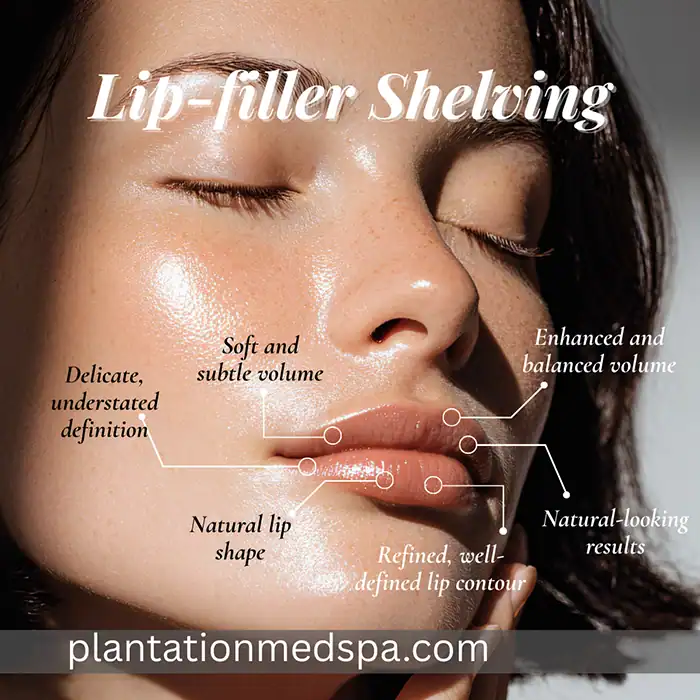The Crucial Role of Skin Hydration in Health and Diseases
Table of Contents:
1. Introduction to Skin Hydration
2. The Skin Barrier: A Multifaceted Protector
3. Factors Affecting Skin Hydration
4. Intrinsic Factors
5. Enhancing Skin Hydration
6. Systemic Intake
7. Implications of Poor Skin Barrier Maintenance
8. Importance of Moisturizers
9. Moisturizers can be classified based on their components
11. Conclusion: Skin Hydration Role in Health and Diseases
12. References
1. Introduction to Skin Hydration
Skin hydration is fundamental to maintaining healthy, resilient, and youthful skin. This intricate process requires attention both from within and externally. In this article, we’ll discover the skin hydration role in health and diseases.
Differentiating between dehydrated skin and dry skin is crucial in understanding skin health. Dehydrated skin lacks water, resulting in a loss of resilience, while dry skin lacks natural oily secretions, leading to a dull and scaly appearance.
2. The Skin Barrier: A Multifaceted Protector
The skin barrier, our body’s outermost protective organ, is vital to skin hydration and overall health. It functions through five essential barrier functions:
- Permeability Barrier: Prevents the loss of fluids, electrolytes, and other essential molecules from the body, ensuring optimal hydration.
- Anti-Microbial Barrier: Protects against the penetration of harmful microorganisms, reducing the risk of infections.
- Antioxidant Barrier: Shields the skin from oxidative damage caused by free radicals, preserving skin integrity.
- Immune Response Barrier: Aids in immune defense mechanisms prevent inflammatory responses and allergic reactions.
- Photoprotection Barrier: Guards against harmful UV radiation, minimizing the risk of sun damage and related skin conditions.
These functions are primarily carried out by the stratum corneum, the outermost layer of the skin, through the “Brick & Mortar” model. Here, corneocytes (the bricks) are embedded in a matrix of hydrophobic lipids (the mortar).
This structure is constantly renewed, with keratinocytes maturing and moving upwards from the basal layer to become corneocytes.
3. Factors Affecting Skin Hydration
Both extrinsic and intrinsic factors can influence skin hydration:
Extrinsic Factors
- Exposure to Temperature Extremes, Particularly in humid environments, can lead to rapid skin dehydration.
- Prolonged Sun Exposure: Results in loss of moisture and damage to the skin barrier, increasing the risk of sunburn and photoaging.
- Repeated Exfoliation: Adding essential oils and protective layers away, increasing sensitivity and dryness.
- Harsh Cleansers: Can disrupt the natural lipid barrier, causing irritation and dehydration.
- Excessive Exposure to Air Conditioning: Removes moisture from the air, leading to drier skin.
- Repetitive Prolonged Bathing: Hot water can deplete the skin’s natural moisture and oils.
4. Intrinsic Factors
- Dietary Choices: Excessive Intake of caffeine, sodium, sugar, and fats can negatively impact skin hydration by affecting the body’s overall water balance.
- Systemic Hydration: Inadequate water intake directly impacts the moisture levels in the skin, leading to dehydration.
- Nutrient Deficiencies: Lack of essential vitamins such as A and C can impair skin health and hydration, reducing collagen production and skin repair.
5. Enhancing Skin Hydration
Boosting skin hydration involves a combination of topical and systemic approaches:
Topical Applications
- Humectants: Substances like glycerin, urea, and hyaluronic acid draw moisture from the environment into the skin, enhancing hydration.
- Moisturizers and Oils: Help lock in hydration and maintain the lipid barrier, preventing moisture loss.
- Products Enhancing Epidermal Ceramides: Support the structural integrity of the skin barrier, improving hydration and protection.
- Dermal Hyaluronic Acid: Boosts skin moisture and elasticity by retaining water within the skin layers.
6. Systemic Intake
- Water: Adequate hydration is crucial for overall skin health, ensuring cells function optimally and maintain moisture balance.
- Vitamins A & C: Essential for collagen production and skin repair, these vitamins contribute to a hydrated, youthful appearance.
7. Implications of Poor Skin Barrier Maintenance
A compromised skin barrier can lead to various dermatoses, manifesting in increased skin sensitivity and other issues.
There are three main scenarios where skin barrier defects impact skin health:
- Cause of Disease: Skin barrier defects can be the primary cause of conditions like atopic dermatitis, where the barrier’s inability to retain moisture leads to chronic dryness and irritation.
- Sequelae of Disease: Existing diseases, such as autoimmune bullous disorders, can cause secondary barrier defects, exacerbating skin issues.
- Aggravation of Disease: A defective skin barrier can worsen conditions like acne and rosacea, increasing inflammation and sensitivity.
8. Importance of Moisturizers
The cornerstone of skin barrier regulation and repair lies in the effective use of moisturizers.
A well-planned moisturizer regimen can:
- Smooth and Hydrate Skin: Enhancing the skin’s appearance and texture, making it feel softer and more supple.
- Reduce Fine Lines: Promoting a more youthful look by plumping the skin and minimizing the appearance of wrinkles.
- Improve Wound Healing: Facilitating faster and more effective repair of damaged skin.
- Provide Anti-Inflammatory and Antipruritic Effects: Reducing discomfort and improving overall quality of life.
9. Moisturizers can be classified based on their components
- Emollients: Smooth the skin by filling gaps between skin cells with lipids, often containing ingredients like ceramides and fatty acids.
- Humectants: Attract moisture to the skin, including substances like glycerin, urea, and hyaluronic acid.
- Occlusives: Form a protective layer on the skin to prevent moisture loss, using ingredients such as petrolatum, lanolin, and mineral oil.
- Protein Rejuvenators: Enhance skin repair and renewal, often containing collagen and elastin.
10. Frequently Asked Questions (FAQs) About Skin Hydration
Q1. What is the difference between dry skin and dehydrated skin?
Dry skin is a skin type that lacks oil and appears dull, flaky, and rough. It can be caused by genetics, aging, or environmental factors. Dehydrated skin, on the other hand, is a condition where the skin lacks water. This can happen to any skin type and is often caused by external factors like weather, diet, and improper skincare. Dehydrated skin tends to look dull and feel tight, and it can lead to increased sensitivity and fine lines.
Q2. How can I tell if my skin is dehydrated?
Signs of dehydrated skin include:
- Dullness and lack of radiance
- Tightness and discomfort
- Fine lines and wrinkles that are more pronounced
- Increased sensitivity
- Rough texture
A simple pinch test can help: gently pinch the skin on your cheek, abdomen, or back of your hand. If it quickly returns to its original state, your skin is likely hydrated. If it takes a moment to bounce back, it might be dehydrated.
Q3. What factors contribute to skin dehydration?
Several factors can lead to skin dehydration, including:
- Environmental conditions: Cold weather, low humidity, and wind can strip moisture from the skin.
- Sun exposure: UV radiation damages the skin barrier, leading to moisture loss.
- Harsh skincare products: Products with alcohol, sulfates, or strong acids can deplete the skin’s moisture.
- Diet and lifestyle: High caffeine and alcohol intake, poor hydration, and a diet lacking in essential fatty acids and vitamins can affect skin hydration.
- Air conditioning and heating: These can reduce indoor humidity, drying out the skin.
Q4. How can I improve my skin hydration?
To enhance skin hydration, consider the following:
- Use a gentle cleanser: Avoid harsh cleansers that strip the skin of its natural oils.
- Apply hydrating serums and moisturizers: Look for ingredients like hyaluronic acid, glycerin, and ceramides.
- Stay hydrated: Drink plenty of water throughout the day.
- Avoid long, hot showers: They can strip moisture from your skin. Opt for lukewarm water instead.
- Use a humidifier: Especially in dry climates or during winter, to add moisture to the air.
- Eat a balanced diet: Include foods rich in omega-3 fatty acids, vitamins A, C, and E, and antioxidants to support skin health.
Q5. Can I use hyaluronic acid every day?
Yes, hyaluronic acid can be used daily. It is a powerful humectant that attracts and retains moisture in the skin, making it ideal for daily use. It can be found in serums, moisturizers, and masks. For best results, apply it to damp skin and follow with a moisturizer to lock in hydration.
Q6. How does diet affect skin hydration?
Diet plays a significant role in skin hydration. Consuming enough water is crucial, but eating water-rich foods like fruits and vegetables also helps. Foods high in omega-3 fatty acids, such as salmon and flaxseeds, can improve the skin’s barrier function and hydration levels. Additionally, vitamins A and C are essential for skin repair and moisture retention.
Q7. What are the best skincare ingredients for hydration?
Effective hydrating ingredients include:
- Hyaluronic acid: Attracts moisture to the skin.
- Glycerin: A powerful humectant that pulls water into the outer layer of the skin.
- Ceramides: Help restore the skin barrier and retain moisture.
- Aloe vera: Soothes and hydrates the skin.
- Urea: Helps to lock in moisture and exfoliate dead skin cells.
Q8. How often should I moisturize my skin?
It is generally recommended to moisturize your skin twice a day, once in the morning and once at night. Adjust this based on your skin’s needs, especially during changes in weather or if your skin feels particularly dry or dehydrated.
Q9. Can drinking water alone keep my skin hydrated?
While drinking water is essential for overall health and hydration, it may not be sufficient alone to keep your skin hydrated. Topical hydration, through the use of moisturizers and hydrating serums, is also necessary to maintain the skin’s moisture barrier and prevent dehydration.
Q10. What skincare routines help maintain skin hydration?
A basic skincare routine to maintain hydration includes:
- Cleansing: Use a gentle, hydrating cleanser to remove impurities without stripping moisture.
- Toning: Apply a hydrating toner to prep the skin for better absorption of products.
- Serum: Use a hydrating serum containing hyaluronic acid or other humectants.
- Moisturizing: Seal in the hydration with a good moisturizer suited to your skin type.
- Sunscreen: Protect your skin from UV damage with a broad-spectrum SPF during the day.
By incorporating these steps and ingredients into your daily routine, you can effectively maintain and improve your skin’s hydration levels, leading to healthier and more resilient skin
11. Conclusion: Skin Hydration Role in Health and Diseases
Maintaining skin hydration is essential for skin health, youthfulness, and the prevention of various skin diseases.
By understanding the factors affecting skin hydration and utilizing appropriate topical and systemic interventions, we can effectively support the skin barrier and overall skin health.
A comprehensive approach to skin hydration enhances the skin’s appearance and functional integrity, contributing to a higher quality of life.
Proper hydration and barrier maintenance are crucial for combating skin illnesses and ensuring the skin remains resilient and healthy.
Hopefully, we have covered Skin Hydration Role in Health and Diseases.
Transform Your Beauty by Preventing Skin Hydration at Plantation Med Spa
Experience the revolutionary power of the skin hydration prevention for a youthful look and feel at Plantation Med Spa, Florida. Our state-of-the-art treatment revitalizes and rejuvenates, offering you a path to radiant, youthful skin. Why wait to unlock your best self?
Call us now at (954) 595-2607 or book online. Your journey to flawless skin begins with just a click or a call.
Embrace the beauty, embrace innovation – Embrace You.



